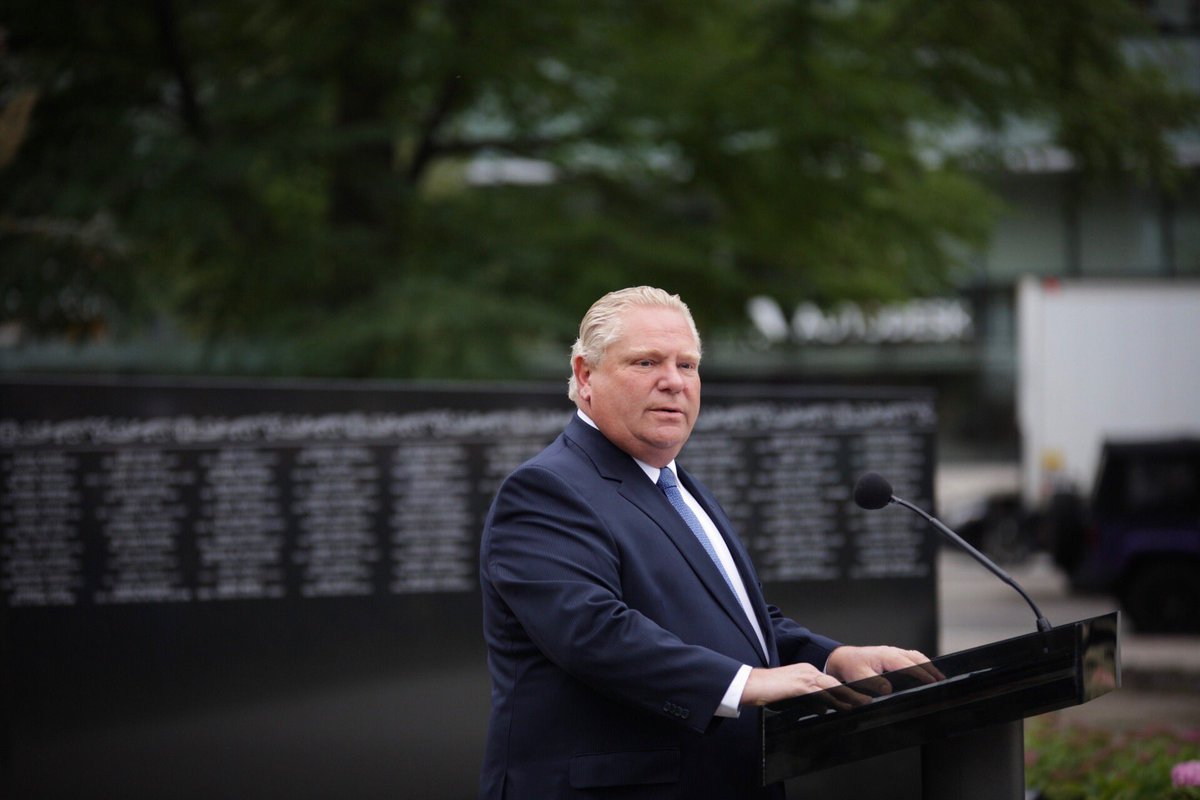
TORONTO — Ontario’s government is calling for details on how Ottawa will compensate dairy farmers adversely affected by Canada’s new trade deal with the United States and Mexico.
Premier Doug Ford said Monday that he was concerned farmers have been “thrown under the bus” by the federal government in the new three-country agreement.
He emphasized the need for the agricultural sector to be compensated and his economic development minister expressed frustration the federal government hadn’t provided more details on the issue.
“We’re calling on the Trudeau Liberals to compensate our farmers,” Ford said, adding that steel and aluminium workers in the auto industry also needed support. “We weren’t at the table or maybe the deal would have been a little different.”
The new United States-Mexico-Canada Agreement, known as USMCA, allows the U.S. greater access to the Canadian dairy market and eliminates competitive dairy classes. It also says the first 2.6 million Canadian autos exported to the U.S. will be exempted from tariffs, a figure well above the current export rate of 1.8 million. But tariffs on Canadian steel and aluminium remain in place.
Foreign Affairs Minister Chrystia Freeland said Monday that all farmers in supply management systems will be fairly compensated for the additional market access being given to trading partners in the deal.
However, she added that the amount and type of compensation will be worked out in coming months while Canada, the United States and Mexico all work to ratify the agreement reached late Sunday.
Jim Wilson, Ontario’s economic development minister, criticized the lack of compensation details and said he believes the deal will cost the diary sector jobs and “tens of millions” of dollars.
“It’s disturbing that you would be spending 13 months on a deal and not have a formula to be able to tell farmers right away what they can expect,” he said. “These are thousands of family farms, dairy farms, in the province of Ontario and you can think that tonight every one of those farmers will be up worrying about what they future is.”
Wilson added that he hoped Ontario could press the federal government to amend the terms of the agreement to better protect dairy farmers.
“We’re not done yet, it’s not signed,” he said. “We’re going to keep fighting.”
Ford and Wilson, who both travelled to Washington last month for a briefing on trade talks, also said they were disappointed that steel and aluminium tariffs remained in place.
The Progressive Conservative government said it will be speaking with industry representatives to determine the impact of the new trade deal.
NDP Leader Andrea Horwath said Ontario should consider some kind of provincial contribution on top of federal compensation to dairy farmers.
“Seeing our government say … they’re prepared to simply walk away and hope for the best when it comes to what the feds what might provide, I think that’s irresponsible,” she said.
Green party leader Mike Schreiner lauded the new trade agreement and said it’s essential to the province’s economy. But Schreiner said if the new pact makes Ontario’s dairy industry look more like the American industry, that’s a bad move.
“I’m looking for financial support for farmers but also ensuring that we maintain family-run dairy farms in Ontario,” he said. “That’s critically important. The average dairy herd size in Canada is around 80 cows. In the U.S. it’s in the thousands.”
Meanwhile, Interim Liberal leader John Fraser said Canada should not jump to head back to the negotiating table.
“Let’s take a look at what we have here and how can we work together to support each other,” he said.
Ford has said since he was elected in the spring that his government would stand with Ottawa as it negotiated a new agreement. Last month, however, the premier signalled he wouldn’t support concessions that hurt Ontario’s dairy farmers, saying their jobs could not be treated as “bargaining chips.”